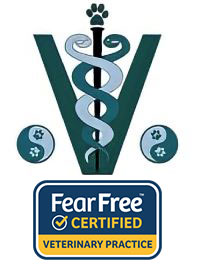Library
-
Too much vitamin A can lead to poisoning. While somewhat uncommon in North America, vitamin A toxicity is sometimes diagnosed in dogs that are fed primarily table scraps. It takes a long time for the clinical signs associated with vitamin A toxicity to develop; symptoms do not usually appear until the dog is at least middle-aged.
-
Vitamin B complex injectable is a solution containing multiple forms of Vitamin B, which are used together to prevent or treat Vitamin B deficiencies. These vitamins promote good overall health for your pet and regulate certain processes in the body. Vitamin B complex injectable comes as a solution for injection either under the skin or into the muscle.
-
Vitamin C injectable is a vitamin supplement used as an antioxidant to help treat certain toxicity syndromes or to create a more acidic urine in dogs and cats. It is also used in guinea pigs to treat scurvy. Vitamin C injectable comes as a solution for injection either under the skin or into the muscle. Injections may be given by veterinary personnel or at home by pet owners.
-
Vitamin D poisoning occurs when a cat ingests a toxic dose of vitamin D. A common source of vitamin D poisoning is when a cat accidentally ingests rodenticides containing vitamin D. The initial clinical signs of poisoning occur anywhere from 8 to 48 hours after ingestion and include depression, weakness, and appetite loss. Vomiting, increased drinking and urination, constipation, and dehydration typically follow these signs.
-
Vitamin D poisoning occurs when a dog ingests a toxic dose of vitamin D. A common source of vitamin D poisoning is when a dog accidentally ingests rodenticides containing vitamin D. Another source of vitamin D poisoning is the accidental ingestion of certain human medications.
-
The Vizsla is a Hungarian pointer, utilized by the Magyar nomadic tribe along with their falcons, to hunt birds and track game. They need a lot of vigorous activity, but as long as they get it, they are gentle enough to lie quietly by Grandpa's feet as he snoozes.
-
Cat Behavior Problems: Vocalization
La mayoría de las quejas relacionadas con los maullidos de los gatos suelen referirse a su intensidad y persistencia o al hecho de que maúllan durante la noche, cuando los propietarios y los vecinos intentan dormir.
-
Vomiting may be caused by disorders of the stomach, but is a clinical sign that can occur with many diseases and problems. Different types of vomiting are reviewed. Any required tests are determined based on physical examination of your cat and questions regarding how your cat has been acting and feeling at home.
-
Vomiting is the forceful evacuation of stomach contents. It is a clinical sign of a disease. Most cases of acute vomiting resolve quickly with simple treatment, without the underlying cause being diagnosed. Any required tests are determined based on physical examination of your pet and the signs your dog has been displaying at home.
-
Vomiting in Dogs
El vómito no es una enfermedad sino un síntoma que aparece en diferentes enfermedades. Muchos casos de vómitos son autolimitantes, cesan espontáneamente en pocos días y en raras ocasiones son consecuencia de enfermedades graves como el cáncer.


